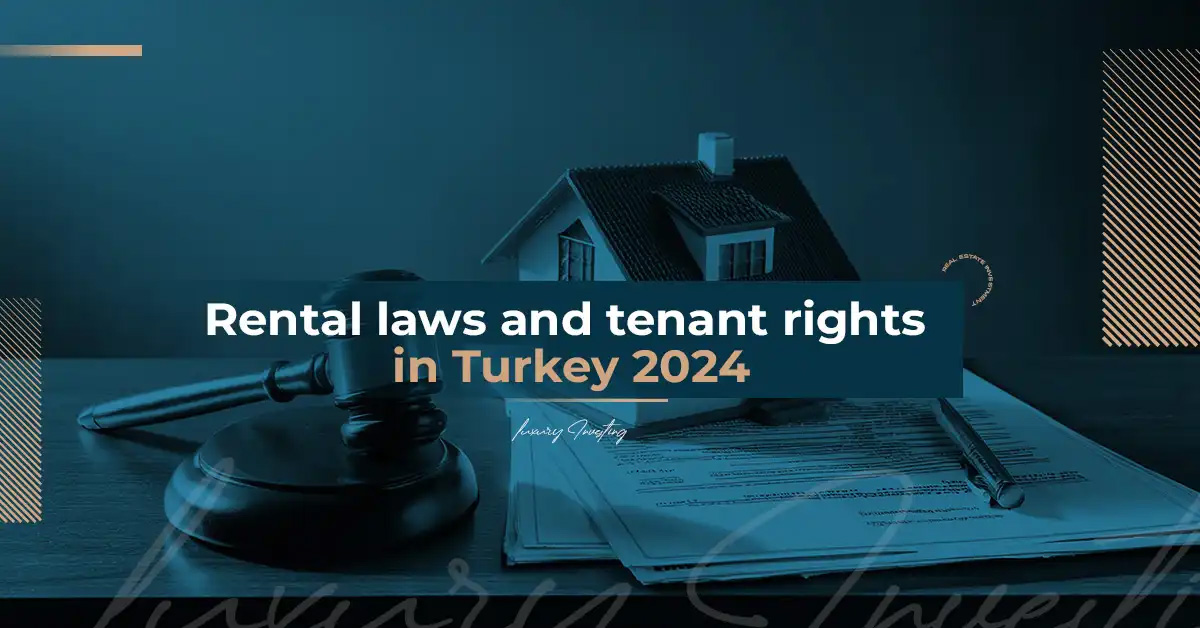Rental laws and tenant rights in Turkey 2025
Turkish Civil Code
The Turkish Civil Code is considered the primary source for regulating lease agreements. This code outlines the rights and obligations of both the tenant and the landlord and sets the steps that should be followed in case of disputes. These laws regulate all issues related to lease renewal, eviction, and various other problems. The lease law in Turkey precisely governs the framework of dealings concerning rental agreements and all details of the rental relationship between the tenant and the property owner, and it also specifies financial transactions between the parties.
The key provisions in this law include:
- Lease agreement: An official lease agreement must be signed between the landlord and the tenant, specifying the terms of the lease, such as its duration, value, and other property-related details. The contract duration for residential properties is typically six months or one year, while for commercial properties it is five years or as agreed upon.
- Lease duration: Generally, lease terms are automatically renewable unless either party notifies the other of their intent not to renew at least thirty days prior to the lease's expiration. The duration can be annual or daily, depending on the type of rental (touristic, annual).
- Rent value: The rent must be determined fairly and agreed upon by both parties, with the annual increment specified according to the rate set by law.
- Annual rent increase: The law regulates the annual increase in rent based on the Consumer Price Index (CPI). It stipulates that the increase should not exceed the percentage specified by the government.
- Security deposit: The property owner is entitled to request a security deposit from the tenant as compensation for any damages that may occur during the lease period. The deposit usually amounts to two months' rent.
- Property modifications: The tenant is not allowed to make any changes to the property without written consent from the owner. Additionally, subleasing the property without the owner's written consent is prohibited. If this occurs, the owner has the right to file a lawsuit against the tenant for unauthorized use. Through this lawsuit, the owner can evict the tenant within six months.
- Responsibility for costs: The rental law states that any financial costs unrelated to the use of the property fall on the property owner. If the tenant pays these costs, they have the right to deduct them from the monthly rent. Such payments often cause disputes between the landlord and tenant due to a lack of understanding of rental laws in Turkey. Regarding property expenses and their payment responsibilities, the following applies:
- The exterior painting of the apartment is the owner's responsibility, although an agreement can be made in the contract to the contrary.
- If there are any issues within the apartment before the tenant takes possession, the tenant can demand that the landlord carry out maintenance and repairs. Alternatively, they can agree to cover the cost themselves and deduct it from subsequent rent payments.
Rent increase rate in Turkey 2024
Rent increases in Turkey for 2024 are determined annually based on the rate specified in rental laws. This increase is calculated based on Turkey's inflation rate, which is assessed by the Turkish Statistical Institute (TUIK). A cap was set to protect tenants, limiting rent increases to no more than 25% for lease agreements renewed between June 11, 2022, and July 1, 2024. With this limitation, the rent increase rate for residential leases could not exceed 25%, and any contracts exceeding this rate were deemed invalid.
As of the beginning of July, the previous decision, which capped rent increases at 25%, has expired. According to the new data from TUIK, rent increases will now be determined based on the officially announced annual inflation rate, which was 65.07% for June of the previous year. This measure affects residential lease agreements and business premises set for renewal during this month, reflecting a significant increase in rental costs for tenants in Turkey.
*Click the link below to calculate the rent increase rate for periods after January 1, 2024


For More Informations Please Fill This Form